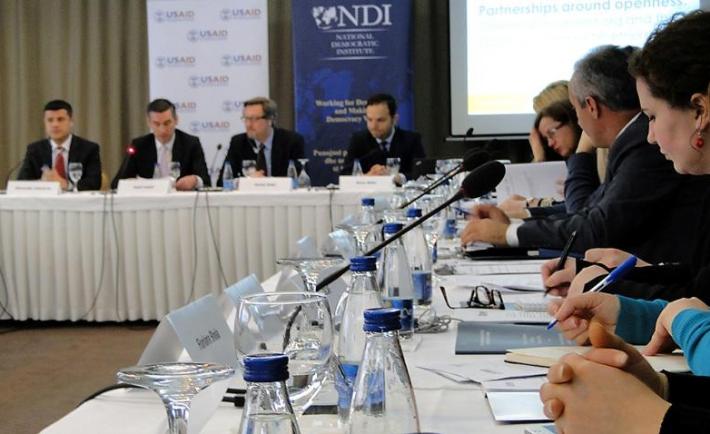To participate effectively in representative democracy, citizens need to engage with and understand the activities of their representatives. The Declaration on Parliamentary Openness is a call to the world’s parliaments to increase their commitment to citizen engagement in legislative work. Collaboratively drafted by the global parliamentary monitoring community, the declaration has been endorsed by more than 180 civil society organizations (CSOs) in over 80 countries.
Increasingly, parliaments are also signing on. On May 4, the Assembly of the Republic of Kosovo formally endorsed the declaration, joining a small vanguard of parliaments around the world. Assembly members and representatives of domestic civil society organizations also established a Forum on Parliamentary Transparency to develop an action plan for the assembly based on the transparency standards in the declaration. The leadership provided by the president of the assembly, Kadri Veseli, as well as the vision of the Assembly Presidency -- vice-presidents and caucus leaders -- calling for an open and transparent parliament was of immense importance for building the political will needed to endorse the declaration. The leadership’s commitment to greater openness was also demonstrated by a symbolic move: the removal of the iron fences surrounding the assembly building, sending the message that no barriers should be placed between the government and the people.
The assembly’s endorsement is a result of a series of NDI activities with a broad range of elected representatives and civil society activists both in Kosovo and the Balkans. Early this year, NDI organized a roundtable with assembly leaders and CSOs to discuss strategies to encourage civic engagement through parliamentary openness. To help set the tone for the discussion, representatives of the OpeningParliament.org community, including the Kosovo Democratic Institute (KDI) and the GAP Institute for Advanced Studies, a thinktank based in Kosovo, presented a number of practical challenges related to public access to assembly proceedings. For example, the discussion focused on the parliament’s official website, which needs to be restructured, enriched and updated regularly with information in open formats, such as XML files for legislative data. In addition, new technologies, including a legislative tracking system, should be introduced to bolster the assembly’s outreach to citizens to encourage their participation in the legislative process.
Elected representatives and civil society activists alike recognize that dialogue between the assembly and CSOs has evolved and become more constructive. Gradually, both sides are developing a mutual understanding of the principles and standards of parliamentary openness. The endorsement of the declaration and formation of the forum are positive indicators that elected representatives and CSO activists will continue to work together to promote greater parliamentary transparency. NDI, with support from the U.S. Agency for International Development and the National Endowment for Democracy, will continue to share best practices from the region and beyond, and assist in the design and implementation of concrete projects to drive the parliamentary transparency agenda.

